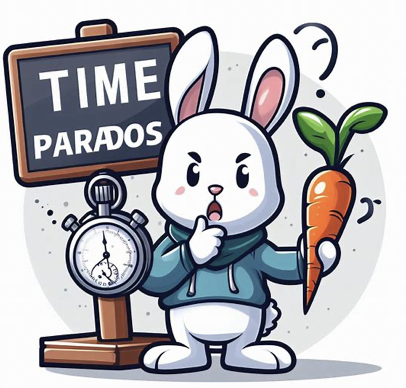The ‘Just One More’ Paradox is a psychological phenomenon that is prevalent in our daily lives, yet often goes unnoticed.
It refers to the human tendency to believe that just one more of something – be it money, a piece of chocolate, among some other thing that gives us utility – will make us satisfied or happy.
However, this is rarely the case.
Instead, we find ourselves trapped in a cycle of constantly wanting more, never reaching the satisfaction we seek.
Table of Contents
The Psychology Behind the ‘Just One More’ Paradox
At its core, the ‘Just One More’ Paradox is rooted in our psychological makeup.
Humans are wired to seek pleasure and avoid pain.
This drive often leads us to pursue more of what we perceive as good and less of what we perceive as bad.
However, this pursuit can become a never-ending cycle, as our brains are also wired to adapt to new levels of pleasure or pain, leading to a phenomenon known as hedonic adaptation.
Hedonic Adaptation and the ‘Just One More’ Paradox
Hedonic adaptation refers to our tendency to return to a relatively stable level of happiness despite major positive or negative events or life changes.
This means that even when we get that ‘one more’ thing we desire, our happiness quickly returns to its baseline level, leading us to seek out the next ‘one more’ thing.
This is why it’s often called the hedonistic treadmill.
Examples of the ‘Just One More’ Paradox in Everyday Life
The ‘Just One More’ Paradox manifests itself in various aspects of our lives.
For instance, consider the common scenario of wanting just one more minute of sleep in the morning.
Despite getting that extra minute, we often find ourselves wanting another, and another, never quite reaching the level of restfulness we desire.
Similarly, in the realm of personal finance, many people believe that just a smaller amount of extra money will make them happy.
However, research has shown that after reaching a certain income level, additional money does not significantly increase happiness.
Overcoming the ‘Just One More’ Paradox
While the ‘Just One More’ Paradox is deeply ingrained in our psychology, it is not insurmountable.
By becoming aware of this paradox and understanding its roots in hedonic adaptation, we can take steps to break the cycle.
This may involve practicing gratitude, setting realistic expectations, and focusing on experiences rather than material possessions.
FAQs on ‘Just One More’ Paradox
What is the ‘Just One More’ Paradox?
The ‘Just One More’ Paradox refers to the human tendency to believe that just one more of something will bring satisfaction or happiness, only to find that this is rarely the case.
What causes the ‘Just One More’ Paradox?
The ‘Just One More’ Paradox is rooted in human psychology, specifically our drive for pleasure and our tendency towards hedonic adaptation.
What is hedonic adaptation?
Hedonic adaptation is our tendency to return to a relatively stable level of happiness despite major positive or negative events or life changes.
How does the ‘Just One More’ Paradox affect our lives?
The ‘Just One More’ Paradox can lead us on a never-ending quest for more, leaving us perpetually unsatisfied.
How can we overcome the ‘Just One More’ Paradox?
We can overcome the ‘Just One More’ Paradox by becoming aware of it, understanding its roots in hedonic adaptation, and taking steps to break the cycle, such as practicing gratitude, setting realistic expectations, and focusing on experiences rather than material possessions.
Summary – ‘Just One More’ Paradox
The ‘Just One More’ Paradox is a pervasive aspect of human psychology that can lead us on a never-ending quest for more.
Rooted in our drive for pleasure and our tendency towards hedonic adaptation, this paradox can leave us perpetually unsatisfied.
However, by recognizing this paradox and taking proactive steps to counteract it, we can find greater satisfaction in our lives.
Related
- Grandfather’s Paradox
- Simpson’s Paradox
- Zeno’s Paradox
- Paradox of Choice
- Paradox of Tolerance
- Atlas Paradox
- Twin Paradox
- Abilene Paradox
- Russell’s Paradox
- Jevons Paradox


